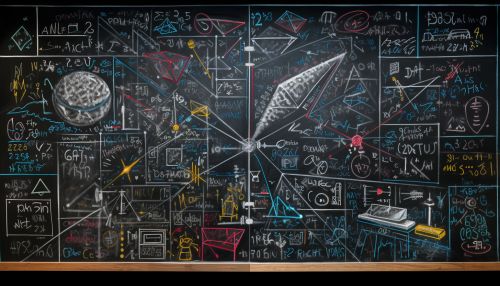Mathematics
Overview
Mathematics is a field of study that involves the properties and relationships of numbers, quantities, shapes, and patterns. It is a fundamental discipline that underpins much of our understanding of the world, from the natural sciences to economics and social sciences. Mathematics is divided into several branches, including algebra, geometry, and calculus, among others.


History
The history of mathematics can be traced back to ancient times, with the earliest evidence of mathematical knowledge dating back to the Babylonian and Egyptian civilizations. The Greeks, notably Euclid and Pythagoras, made significant contributions to mathematics, including the development of geometry and the Pythagorean theorem.
Branches of Mathematics
Mathematics is divided into several branches, each with its own unique focus and methodologies.
Algebra
Algebra involves the study of symbols and the rules for manipulating these symbols. It is a unifying thread that runs through almost every branch of mathematics.
Geometry
Geometry is concerned with the properties and relationships of points, lines, angles, and shapes. It is one of the oldest branches of mathematics, with roots tracing back to ancient civilizations.
Calculus
Calculus is the study of change and motion. It is divided into two branches: differential calculus, which concerns rates of change and slopes of curves, and integral calculus, which concerns accumulation of quantities and areas under curves.
Statistics
Statistics is the branch of mathematics dealing with the collection, analysis, interpretation, presentation, and organization of data. It provides a way to draw conclusions about populations from samples.
Number Theory
Number theory is a branch of pure mathematics devoted primarily to the study of the integers and integer-valued functions.
Applications of Mathematics
Mathematics has a wide range of applications in various fields, from the natural and social sciences to engineering and technology. In physics, for instance, mathematical equations are used to describe the laws of nature. In computer science, algorithms and computations are grounded in mathematical principles. In economics, mathematical models are used to predict market trends and economic behavior.
Mathematics Education
Mathematics education is a field of study concerned with the teaching and learning of mathematics. It involves the design of curricula, the development of teaching methods, and the assessment of student learning.
